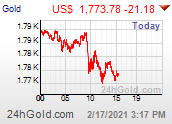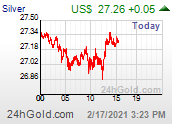Are we Really Stupid?
by Matt Bergles
The impetus for this article came from several real-life experiences and a lifelong commitment to making a difference in how we Americans elect candidates, as well as how we formulate, enact and implement public policy at all levels of government. The most immediate experience came as a losing candidate from Denver’s House District 8 in the 2008 Democratic primary.
I ran for many reasons, not the least of which was a disgust with the politics of who’s in and who’s out, who can raise the most money, who has the most connections and name recognition and who can create the best sound bites. I listened, walked and talked my way across countless miles and thousands of doorsteps and attended a multitude of neighborhood meetings, political events, church services and block parties. I also brought a plethora of real-life experiences that I thought were germane to serving in a “citizen legislature.” I’d been a high school teacher and coach for 27 years, had a Ph.D. in Public Affairs, was a former blue collar worker, a faithful Catholic Christian, a lifelong sportsman/conservationist and a husband and father among many other things. I thought that with a solid background, the ability to speak intelligently about pertinent issues, hard work and passion, I could certainly prevail. I was wrong.
My opponent, the victor, brought many fine qualities and experiences as well and has been, and I’m sure will continue to be, a fine public servant. I was not ashamed to lose to her; I respect her and wish her well. The campaign experience however, aggravated a long simmering inquisitiveness I’ve had about the problems within the American political system and helped synthesize and focus the big picture experientially, whereas before it was merely conceptual. I will try to briefly summarize that picture as I conceive it and offer a possible remedy.
My candidacy allowed me to meet a cross-section of voters from every possible ethnic and socio-economic group and helped form a clear picture of what is happening concerning elections and policymaking in our state, and at the risk of over-generalizing, our Republic. The day of my loss – exhausted and frustrated – I began to mentally review my campaign, its organization, fundraising, voter outreach etc. in an effort to surmise what I might have done better to attain victory. Serendipitously, a successful political consultant and old friend called from across the country to console me and debrief what happened. After the usual postmortem, he mentioned a book that he said explained the real reason for my loss and why our political system is in such disrepair. “I’m sending you Just How Stupid Are We? Facing the Truth About the American Voter, by Rick Shenkman” he said. “You’ll see that it’s not you at all. Who could have been a better candidate and run a better campaign than you? It is the fault of people we allow to vote in this country. They’re ignorant, lazy, uneducated on the issues and are easily swayed by gimmicks; if they even bother to register, let alone vote at all.”
“That’s it, he’s right” I thought, as countless questions and comments I had encountered throughout my campaign began to resurface in my mind such as: “There’s an election?” “Can you get my neighbors to make their dog stop barking?” “Can you make a set of hitchhiking hand signals?” “Can you end the war in Iraq?” “Are you on City Council as a State Representative?” “Do I have to register?’ “I just saw you on TV, you’re the guy running against McCain, right?” “You’ve got my vote, I always vote for the Democrat (remember, this was a primary, all of the candidates on the ballot were Democrats)!” The title of the book alone conveniently let me off the hook for any responsibility in my loss and validated my candidacy. I immediately concluded that stupid voters were the reason for my electoral demise and the demise of the entire system. I smugly hung up the phone and waited for the book to arrive so I could read it and end my mental maelstrom, validate my superiority as a candidate and ruminate about the stupid voters in this district, state and nation!
I did read Just How Stupid Are We? Facing the Truth About the American Voter, and there is some truth to be gleaned from it to be sure. But as time went by and the sting of my loss diminished, my thoughts broadened to encompass a wide array of questions concerning the present state of the American electorate and thus, of our republic. Obviously, voters share a large part of the blame. But what about the people they elect? What about the media? What about our public schools, colleges and universities? How about the billions of dollars spent to influence elections and those elected? Why is incumbency so powerful? Why can’t partisans let go of their entrenched allegiance and embrace the best evidence and therefore, the best candidates? I set out to find answers to these and other questions and once found, prescribe recommendations to put our republic back on track and asked how do we get from here to there? From the dismal state of the American political system that has, in turn, resulted in the dismal state of our economy, our foreign relations, our natural environment our public educational institutions and culture. To, a country of thoughtful and respectful citizens engaged in informed, lively, yet civil dialogue and debate – absent the politics of personal and party destruction – focused exclusively on forming a more perfect union.
Impossible? Naïve? Maybe. But what is the alternative to striving for such a goal? A continuation of what today passes for democracy? Such as: Over a billion dollars spent on a mostly negative presidential campaign. Several hundred million more spent on mostly negative congressional, state and local campaigns that produce victorious candidates who barely have time to write a victory speech, let alone contemplate sound public policy before the reelection campaign begins. Thoughtful policy with an eye toward improving people’s lives and the community that is today superceded with policies that satisfy and enrich well-heeled interest groups. Citizens who can tell you the latest celebrity divorce details but don’t know the latest American casualty figures from Iraq. People who still believe that Al-Quaeda and Saddam Hussein worked together in the 9/11 attacks.
As further demonstration, on the right, many people believe that guns are as American as apple pie and there should be no limits to their purchase, ownership or use – even bazookas and machine guns. They bombastically declare that the decay of our public schools is the fault of greedy, unionized teachers. We see people of faith who have been duped into believing that science is evil and have conveniently stopped thinking so as to actually espouse that the earth is only 6,000 years old, the theory of evolution is anti-Christian and global warming is a liberal conspiracy. They’re convinced that being “conservative” and pro-life means allowing the government to tell women that they must carry all pregnancies to term, no matter their personal circumstances. Yes, God is against abortion and euthanasia, but killing thousands of American service men and women and upwards of 100 thousand innocent Iraqi civilians in a war based on lies passes for patriotism. And let’s make sure we put all of those murderers, rapists and thieves to death in direct defiance of the First Commandment. Oh yes, a healthy planet is necessary to sustain life and the root word of “conservative” and “conservatism” is “conserve,” and there is that pesky Noah story; but people who advocate for solving global warming or saving our fellow dwindling species are environmental whackos. Never mind that there are over 6 billion people (and growing) on the planet and less than 1,000 blue whales.
On the left, there are still those who believe that the Monica Lewinsky affair was only part of a vast right wing conspiracy. President Clinton did nothing wrong. After all, look at the adultery statistics among American males, he only did what millions of American men do – or wish they could do. Some on the left still hold that more money and bigger government can solve every problem. That with more caring, less structure and more programs in our public schools, kids are going to magically learn without adult guidance outside of the schools. That anybody should be able marry anyone and everyone and thousands of years of legal precedent be damned. That capitalism is evil and wealth should be equalized through a government formula. The list of fantasies – on both ends of the spectrum – goes on infinitely.
So, how do we fix this problem? Shenkman is short-sighted in his prescription, calling for more civic education. I’ve been there and done that, teaching high school social studies for 27 years. It isn’t working. He is right in naming the root problem of our ignorant electorate: Americans would rather consume material stuff rather than news and information. So, we have to figure out a way to put elections in the hands of those who truly care to inform themselves and make sound voting decisions. In my mind, this means achieving two fundamental things, getting money out of politics and shortening the time allowed for campaigns. The problem of course, is that numerous court decisions, especially Buckley v. Valeo, have upheld spending and time spent campaigning as First Amendment rights. So be it. Volunteerism is the key. Right now, the best prescription seems to be in the “clean elections” movement, a voluntary program that is meeting with some success in Arizona and Maine.
Under a Clean Elections system, candidates who want to receive public financing must collect a certain number of small "qualifying contributions" (often as little as $5) from registered voters. In return, they are paid a flat sum by the government to conduct their campaigns, and in turn, agree not to raise money from private sources. Candidates who are outspent by privately funded opponents may receive additional public matching funds. Since candidates may refuse government funding and continue to rely on voluntary contributions without spending caps, clean elections appear to be in line with the Supreme Court's Buckley v. Valeo decision, which struck down mandatory spending limits as an unconstitutional restriction on free speech and affirmed that elections can be publicly financed.
As a life long Democrat and union member, I’m concerned that small contributions by lots of members may lose out, thus will the voices of working people. However, “clean election” legislation can certainly be tailored so as to protect small group bundling, or penalize large contributors equally. I simply want people to attend debates, read position papers and vote accordingly instead of letting commercials, yard signs and gimmicks inform their decisions. This sort of reform, it seems to me, is what our system needs.
Matt Bergles
10/20/08











0 comments:
Post a Comment